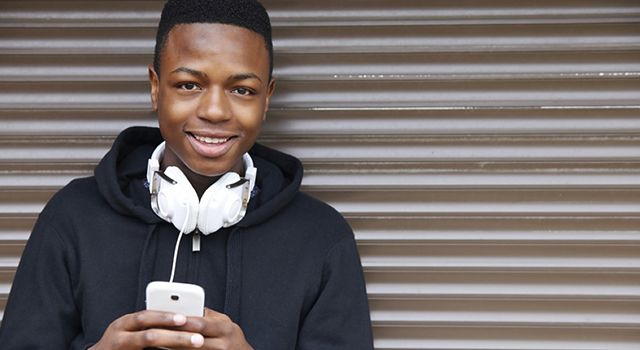Blog
Blog
What You Should Know About Hearing Loss in Teens

According to The Hearing Foundation of Canada, one in five teens between the ages of 12 and 19 suffers from hearing loss. In most cases, it is noise-induced, which can be prevented. It’s important to speak with your teen to help them understand the serious risks involved with listening to loud music, as hearing damage is permanent and can affect their quality of life.
When the sensory cells inside the cochlea of the inner ear are frequently exposed to loud music, they can weaken and die, causing irreversible damage. These cells play a critical role in our hearing health and provide us with the ability to hear tones. Unfortunately, scientists have yet to discover a way to restore these cells, which is why experts urge parents to speak with their children about the effects of noise-induced hearing damage.
How to Prevent Noise-Induced Hearing Loss
Being surrounded by constant noise at 85 decibels or above, which is equivalent to heavy city traffic or a school cafeteria, can lead to hearing loss. When listening to music on an iPod or smartphone at the maximum volume level, which is 105 decibels, your teen can sustain hearing loss within 15 minutes. The chances of developing hearing loss at a rock concert or sporting event are dramatically increased; at 110 decibels, sensory cells can become damaged in just over one minute.
The best way to help your teen understand how loud music can affect their hearing health is to provide them with examples on how the damage can impact their day-to-day activities and lead to the use of a hearing aid in Calgary. You can also discuss the following simple rules to help them enjoy better hearing for life:
- Turn down the music. Listening at a safe level can significantly reduce sensory cell damage. They can also try using noise-canceling headphones, which are designed to block out background noise so music can be enjoyed at a lower volume.
- Protect your sensory cells. When attending a concert or sporting event, opt for earplugs or earmuffs for an added level of protection. They are available in several different sizes and styles, and some are specifically designed for listening to music.
- Don’t get too close to the noise. The farther you are, the safer it is. At a concert, choose seats that are located far from loud speakers or if you are walking by a noisy and busy construction site, walk on the opposite side of the street.
If you are concerned about your teen’s hearing ability due to noise-induced damage, Soundwave Hearing Care offers hearing tests and a variety of hearing aids in Calgary to suit almost any hearing loss concern. From receivers in the canal to behind the ear models and more, we can help determine the extent of the damage and find the right aid to improve your child’s hearing and quality of life. Use our online form or visit one of our convenient locations.
All the blogs are reviewed and edited by our clinic's lead audiologist, Dr. Anne Wooliams. Dr. Woolliams is an experienced audiologist specialized in pediatric audiology, auditory processing, and tinnitus/sound sensitivity therapy. She is dedicated to providing top-notch hearing care and helping her clients improve their language and communication abilities. Dr. Woolliams' expertise in literature and linguistics, combined with her passion for helping people improve their language and communication, make her an incredibly valuable asset in the field of audiology. Learn more about Dr. Woolliams.
